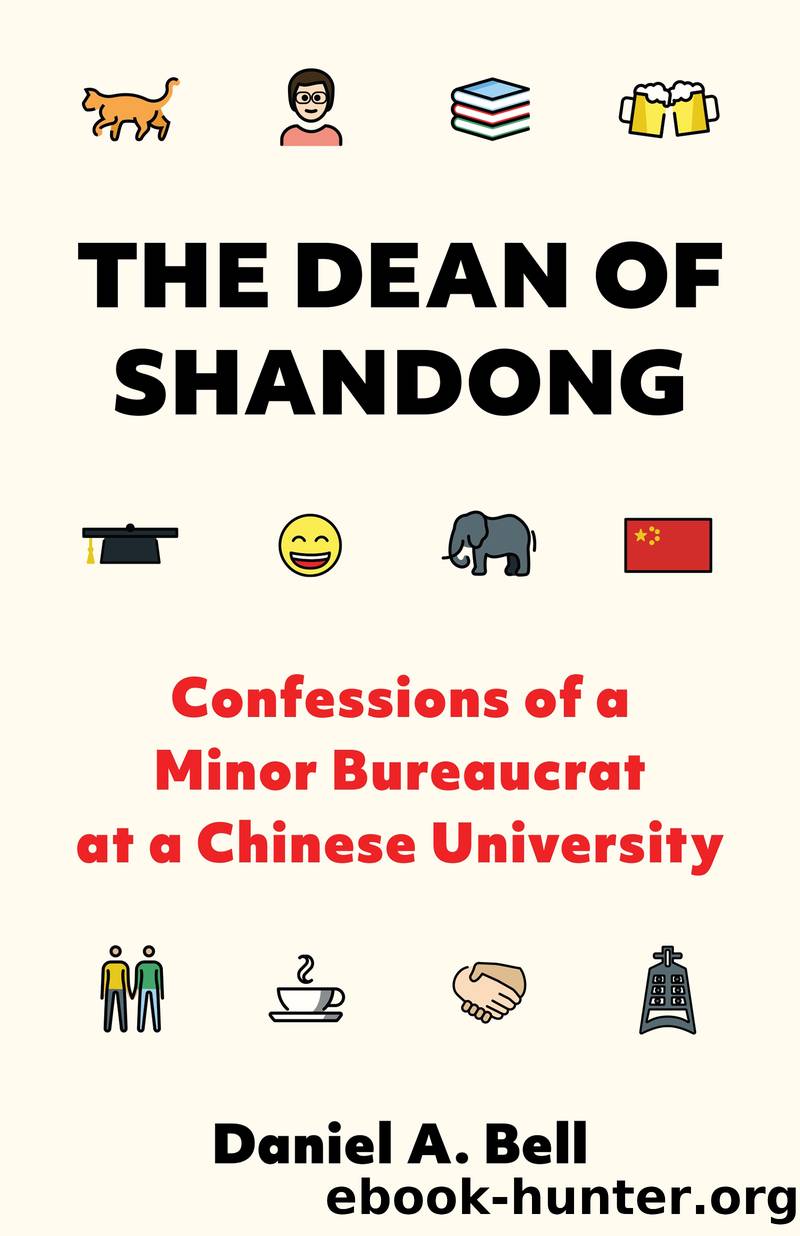The Dean of Shandong by Daniel A. Bell;

Author:Daniel A. Bell;
Language: eng
Format: epub
Publisher: Princeton University Press
Published: 2023-01-03T00:00:00+00:00
8
Censorship, Formal and Informal
JOHN STUART MILLâS On Liberty, first published in 1859, is the most influential defense of free speech ever written. What is less well known is that Mill worried more about âpublic opinionâ than about state censorship. As Mill puts it, the tyranny of public opinion is âmore formidable than many kinds of political oppression, since, though not usually upheld by such extreme penalties, it leaves fewer means of escape, penetrating much more deeply into the details of life, and enslaving the soul itself.â1 Yes, he was writing in Victorian England and our time may not be as conformist. But itâs worth asking if his worries are still relevant today. My own experience writing about Chinese politics suggests that it depends on the context. Today, Millâs thesis is right about the West but wrong about China.
In China, it will come as no great surprise that the heavy hand of state censorship is the biggest problem. And things have gotten worse the past few years. In 2015, Education Minister Yuan Guiren called for the strengthening of Marxist ideology in universities and a ban on âteaching materials that disseminate Western values in our classrooms.â2 On the face of it, such regulations are absurd. It would mean banning not just the ideas of John Stuart Mill and John Rawls but also those of thinkers such as Karl Marx and Friedrich Engels.
Pronouncements against the influence of Western values contradict whatâs really happening in higher education in China. There have been recurrent campaigns against foreign interference since the 1980s, and yet the trend has been consistent: more international links with Western universities, more academic meritocracy and less political ideology in the selection and promotion of professors, and experimentation with different modes of liberal arts education. In my faculty, an academic committee selects and promotes professors based on academic merit, and political considerations rarely intervene.3 Of course, the government could reverse these trends, but the nationâs leaders know full well that a modern educational system needs to learn as much as it can from abroad.
In my case, Iâve been teaching political theory in mainland China for two decadesâthirteen years at Tsinghua University, then six years at Shandong Universityâand I continue to be pleasantly surprised by the amount of freedom in the classroom.4 I recognize that the classics are less subject to censorship than works in contemporary political science and theory. I also recognize that English-language books are not censored as heavily as works in Chinese.5 Still, I routinely discuss politically sensitive topics, and much of what I teach would fall in the âprohibitedâ category if official warnings were enforced to the letter. At Shandong University, Iâve been teaching an advanced undergraduate course in political philosophy. Here is what I say in the syllabus:
This course is a basic introduction to the main principles of political philosophy. The history of political philosophy, whether in China or the West, is a history of debates about contrasting political values: What matters more, freedom or community? Equality or hierarchy?
Download
This site does not store any files on its server. We only index and link to content provided by other sites. Please contact the content providers to delete copyright contents if any and email us, we'll remove relevant links or contents immediately.
Spare by Prince Harry The Duke of Sussex(5197)
Navigation and Map Reading by K Andrew(5159)
Tuesdays with Morrie by Mitch Albom(4784)
Machine Learning at Scale with H2O by Gregory Keys | David Whiting(4313)
Cracking the GRE Premium Edition with 6 Practice Tests, 2015 (Graduate School Test Preparation) by Princeton Review(4294)
Never by Ken Follett(3958)
Goodbye Paradise(3811)
What It Really Takes to Get Into Ivy League and Other Highly Selective Colleges by Hughes Chuck(3760)
Fairy Tale by Stephen King(3400)
Harry Potter and the Prisoner of Azkaban (Book 3) by J. K. Rowling(3360)
Pledged by Alexandra Robbins(3179)
Kick Ass in College: Highest Rated "How to Study in College" Book | 77 Ninja Study Skills Tips and Career Strategies | Motivational for College Students: A Guerrilla Guide to College Success by Fox Gunnar(3131)
Reminders of Him: A Novel by Colleen Hoover(3121)
A Dictionary of Sociology by Unknown(3085)
Sapiens and Homo Deus by Yuval Noah Harari(3076)
The Social Psychology of Inequality by Unknown(3031)
Graduate Admissions Essays, Fourth Edition: Write Your Way into the Graduate School of Your Choice (Graduate Admissions Essays: Write Your Way Into the) by Asher Donald(2923)
Will by Will Smith(2922)
Zero to Make by David Lang(2786)
